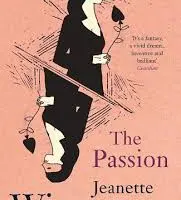The Reluctant Fundamentalist, by Mohsin Hamid
Mohsin Hamid’s The Reluctant Fundamentalist is a novella (of which more later) addressing issues of fundamentalism, Western neo-imperialism and the responsibility of the individual. It is also an account of one person’s journey, from member of America’s corporate elite to anti-Western fundamentalist, a journey which itself inextricably mixes the personal and the political.
The Reluctant Fundamentalist has rather divided critical opinion, in large part due to one element, the framing device used by Hamid. The conceit of The Reluctant Fundamentalist is that it is one side of a conversation between a Pakistani man named (with slightly too obvious symbolism) Changez, a Princeton graduate and former employee of Underwood Samson (a fictional American company, prestigious and highly lucrative), and an unnamed American that Changez meets in an outdoor cafe in Lahore. Changez recounts his life to the American, describing his journey from modern corporate Janissary to (as the American would perceive him) fundamentalist and enemy of the country which once gave him a home. The framing device is incredibly artificial, leading to dialogue that is often hugely unconvincing and in which Changez routinely describes things his companion would perfectly clearly be able to see for himself:
You seem worried. Do not be; this burly fellow is merely our waiter, and there is no need to reach under your jacket, I assume to grasp your wallet, as we will pay him later, when we are done. Would you prefer regular tea, with milk and sugar, or green tea, or perhaps their more fragrant speciality, Kashmiri tea? Excellent choice. I will have the same, and perhaps a plate of jelabis as well. There. He has gone. I must admit, he is a rather intimidating chap. But irreproachably polite: you would have been surprised by the sweetness of his speech, if only you understood Urdu.
The framing device runs through the novel, with Changez constantly making references to the surroundings in the Lahore cafe and to the reactions of the American, it cannot therefore simply be taken as a small part of a larger whole. It is not remotely naturalistic, nobody talks like Changez, so elaborately and in such needless detail, nobody would listen so long if anyone did. Ultimately then, the framing device is just that, a clear device, and I think one must either decide to accept it and ignore it or simply choose not to read the work, because if one can’t suspend disbelief in the artificiality of the dialogue then the short length of this work will I think be full of small irritations as Changez once again describes the obvious or summarises for his companion what that companion just said.
Happily, before I started The Reluctant Fundamentalist I was aware of the framing device, and Kevin of the kevinfromcanada blog had reassured me that despite it there was content which made the book worthwhile. I’m glad he did, as in fact once I accepted the artificiality, I thoroughly enjoyed this work. Hamid has a knack for description and paints a vivid picture of the Lahore cafe, Princeton, New York, Underwood Samson and its employees, and all the other locations and people to which the narrative takes us as Changez describes his life.
Where The Reluctant Fundamentalist really succeeded for me, however, was in the space it gave to a multiplicity of interpretations. Underwood Samson is a company that values businesses, sometimes with a view to possible acquisitions, sometimes with a view to cuts in headcount and lesser-performing divisions. Staff at Underwood Samson are trainted above all else to “focus on the fundamentals”, and its staff are themselves economic fundamentalists – utterly focussed on shareholder value, on pure Anglo-Saxon capitalism and on the performance of their jobs (with the high rewards attached), to the exclusion of factors such as social impact or the consequences for the businesses (and their employees) that they assess.
Changez then is not just a reluctant fundamentalist in the obvious sense, but also before he radicalises in that he is a reluctant fundamentalist for capitalism too. He has doubts from an early stage about his role, about the impact his work has on others, he strives to focus on the fundamentals, the numbers, but keeps seeing the wider implications of his work.
In this part of his life, Changez considers himself one of a number of largely interchangeable Princeton graduates, an economic warrior elite, he notes that though they are diverse in terms of ethnicity and gender in values they are all almost exactly alike. Indeed, I’d go so far as to say this fundamentalism is more persuasive than the radical kind, since Changez never seems terribly religious and if he is a fundamentalist still later on he is much more an anti-globalisation fundamentalist than he is an Islamic one (of course, one argument is that he doesn’t change fundamentalism, but rather ceases to be a fundamentalist).
Hamid, himself a Princeton graduate, skilfully depicts America’s elite, its confidence, its absolute sense of certainty and of being the best. He also shows its ignorance of a wider world, of a wider perspective (as subtly commented on in the remark about understanding Urdu, in the quote above). He captures mannerisms such as the way a man shakes his wrist to make his watch settle, a mannerism I have myself oddly enough, with a perceptive eye. His accounts of the working life and of the social life of this corporate elite are well painted.
Changez’s journey out of this elite, flows in large part from his relationship with another member of it, Erica. Erica is young, beautiful and charismatic, and from a very rich and established family. She suffers, however, from depression linked to the death of a past boyfriend from illness. Erica, as the novel progresses, increasingly withdraws into herself, into her fantasy of life with the dead boyfriend, and Changez as he seeks to reach her increasingly himself withdraws into his own fantasy of life with Erica – a fantasy that is as unattainable as her own dreams. One interpretation, again of the many one could make of this work, is that Changez’s journey is not so much political as personal, that his failure with Erica leads to him abandoning the world she forms part of. There is a sense too almost of psychic infection, of Erica’s malaise communicating itself to Changez as he strives to reach inside her and pull her out of her increasingly internal world. In this sense, Changez’s journey is not one between fundamentalisms but one into mental illness, though I do not think that is the primary thrust of the book’s narrative.
Also successful is the picture Hamid draws of America and America’s intervention in the world, an intervention here driven by equal parts ideology and ignorance of local conditions. Hamid captures well the isolated nature of international businessmen, sitting in air conditioned limos and meeting rooms, being whisked past the locals who must simply stand by and watch (he brought strongly to mind a business trip I once had in Chennai, returning to the airport I was myself driven in an air conditioned limo past literally hundreds of locals queuing out in the heat, I did not have to queue with them).
But why do you recoil? Ah yes, this beggar is a particularly unfortunate fellow. One can oly wonder what series of accidents could have left him so thoroughly disfigured. He draws close to you because you are a foreigner. Will you give him something? No? Very wise; one ought not to encourage beggars, and yes, you are right, it is far better to donate to charities that address the causes of poverty than to him, a creature who is merely its symptom. What am I doing? I am handing him a few rupees – misguidedly, of course, and out of habit. There, he offers his prayers for our well-being; now he is on his way.
Finally, I would note that Hamid also nicely brings out a sense of foreboding, of threat, in the dialogue (more accurately, monologue). Changez makes a number of comments, seemingly innocent, but capable of menacing interpretation were you so inclined. He observes how the American looks around in a manner reminiscent of an animal outside its habitat, unsure if it is predator or prey. He remarks on the pleasure one takes in eating food with the hands, commenting on the “great satisfaction to be had in touching one’s prey”, but it remains uncertain exactly who is prey in this encounter, exactly who is the predator.
Overall then, there is much here to recommend, thoughts on the nature of power and of America’s relationship with the world. Thoughts on the connection between the personal and the political, how one can fuel the other, as Erica’s disengagement with Changez is echoed in his disengagement with the West. Hamid compares disparate fundamentalisms, asking hard questions about whether our own free market fundamentalism is itself free of harm. This is a book without by and large answers to these questions, rather it raises issues and asks the reader to think about them. To take just one example, one could argue that Changez was treated well by Underwood Samson and repaid them with disloyalty and betrayal, that America generously gave him all it had to give, and he threw it back. Alternatively, one could argue that Princeton played a part in coopting the world’s brightest, turning them into Janissaries in the service of America, a foreign and imperial power. The work supports both interpretations, and many more.
As well as all this, Hamid is an able writer, this is a tremendously easy read and provided you can ignore the framing device I think it has much to offer stylistically.
What I would not recommend, however, is how the work is presently packaged. Like it’s fellow 2007 Booker nominee, On Chesil Beach, The Reluctant Fundamentalist is a novella, not a full length novel. Here it is blatantly padded for extra length by the use of a mix of larger than normal font, double line spacing and wide page margins. Even with those tricks, it clocks in at a reasonably concise 209 pages – without them I suspect it would be around half that length. This is particularly frustrating as Hamid is plainly aware that he has written a novella, the character Erica is herself a novelist and twice in the text speaks of the difficulties of the novella as a form (“a platypus of a beast”), it is hard in those passages not to hear Hamid’s voice speaking directly to the reader.
‘It’s more a novella than a novel,’ she said. ‘It leaves space for your thoughts to echo.’
Given that Hamid intends it as a novella, and given that it plainly is one, Penguin’s decision to market it as a novel is one I find frustrating and I would prefer that future imprints present the work as what it is rather than what it is not. That said, Penguin plainly intend it for wide readership, the cover quote (rather oddly to my mind) is from Philip Pullman, who compares it to a thriller. Penguin clearly hope the work has mass market crossover appeal, and given the smoothness and accessibility of the writing they will probably be successful in that goal, quite likely already have been.












I saw a copy of this book in the secondhand shop months ago. I avoided it then thinking the book was another justification to the U.S. led terrorist “war on terror” in defense of free market fundamentalism. The packaging (those blurbs or whatever) must have something to do with that too. Thanks for this illuminating post. Will look for the book again next time I go to the bookshop. And yeah, Changez do seem like a forced name.
I actually googled it, Changez is a real name, though I think it’s obviously chosen for the rather crude symbolism.
The book was accused of anti-Americanism in some corners, though I think it’s only if you view any criticism of America as being anti-American that that accusation really stacks up. Personally, I think one can criticise America without being anti-American, indeed I find the alternative viewpoint slightly absurd, criticism is an essential part of the democratic process.
I would suggest though reading a few pages before buying, the framing device really is quite intrusive, it is worth ensuring that you’re cool with it.
I think that Hamid uses his framing device in the same way that Tintoretto and Caravaggio use their paint — he builds layers of meaning which eventually produce a very complex book. In some ways, it is artificial — but in the final analysis it is essential to producing the complete work.
This is an excellent review because it captures the themes of that work. Just what is fundamentalism? Is only one world view acceptable? And what is it like to be a talented individual living in that kind of world?
One of the reasons that this book had such an impact on me was that I was a Canadian living in the United States (in Pittsburgh, near where the fourth plane crashed) when 9/11 happened. As dreadful as the event was — and it was — in some ways I was equally concerned by another reaction, best summed up as “you aren’t one of us.” One of Hamid’s most powerful themes is his exploration of that alientation created not by his character but by the world of which, until then, he thought he was a part.
I do think this is an excellent book, even if the publisher cheats a bit to turn it into a novel (my response would be: read it twice and then you get full value). Thanks Max for bringing it back to attention.
I think you’re probably right about the framing device, it probably is essential.
I have a small concern that Hamid may be following that most insidious of advice to writers, writing about what he knows. He’s a Princeton educated chap of Pakistani descent, hopefully however he’s just used some of that on this occasion. The trouble with writing what you know is that most of us only know a fairly narrow world, and it can lead to authors struggling to get a second interesting work out of what ultimately will be limited source material.
It can also lead to an awful lot of novels about middle class people in the arts having difficult relationships, which gets a tad dull, though Hamid hasn’t gone there thankfully.
The alienation is definitely key, I’ve heard from a few people how America became suddenly unwelcoming, which is perhaps understandable but could be very shocking for those who had come to consider themselves basically American and then learned the Americans themselves did not agree.
That last sentence captures the way I felt exactly.
I too wonder what the next book (if there is one) might be. Part of me is definitely hoping that Hamid continues to explore the corporate world that he obviously knows at lease a bit. It was one aspect of the book that I found quite intriguing — and would have been interested in more, although it would have been off theme.
He captures the corporate world very well, being part of it myself there was a lot I recognised, which was part of what impressed me.
Also, if you convince the reader that the bit they know is accurate, they’re likely to trust you on the bits they don’t know.
I really enjoyed this book, and I wasn’t expecting it to be at all what it was. I particularly like the misdirection of the title (which you speak about in your review), and the “anti-American”/anti-capitalist story that unfolds throughout.
A strong novel(la) from a strong Booker shortlist.
The title is misleading, isn’t it? Or perhaps, if not misleading, a game played with the prospective reader’s expectations. I rather liked that too.
I do wonder if it was intended to be more even handed in its treatment of the various fundamentalisms than I personally found it (I thought it better at critiquing Changez’s original faith than it was the one he moved to), but whether so or not I thought it dealt in some actually quite complex issues in a very accessible and easily read manner and that’s no small thing at all. I’m definitely curious to see what Hamid does next.
Pingback: The Archivist’s Story, by Travis Holland « KevinfromCanada
Pingback: KFC’s Third Contest: Pick the IMPAC winner « KevinfromCanada
After finishing my second reading of The Reluctant Fundamentalist, I am now exploring the cultural and literary allusion in the novel and have found much to enlighten my understanding of Hamid’s intention as well as his process. His references to Gatsby and Heart of Darkness were helpful, but particularly interesting was the reference to Italo Calvino’s Palomar, a novella by an author famous for artifice in writing.
The Calvino point is interesting, I picked up the Gatsby and Heart referencse, and indeed how they tie in is reasonably clear, and I talk above about the comments he makes about the novella as a form. The Calvino though I don’t recall, could you expand? Where does the reference crop up again?
Pingback: The Autobiography of a Half-Baked Indian | Pechorin’s Journal
Pingback: Moving to the city is the first step to getting filthy rich in rising Asia | Pechorin's Journal